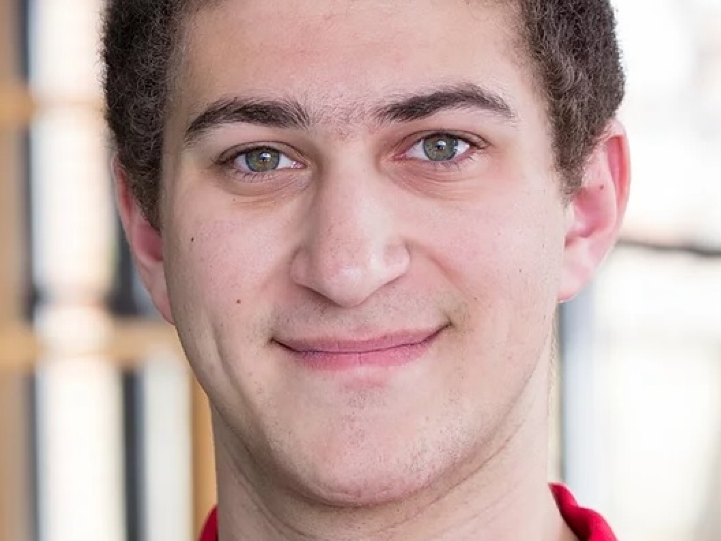
“Find a Mentor in the Field”: Okay but how?
New Professionals and Graduate Students Graduate New Professional
April 13, 2021
When I was in grad school, I had professors and supervisors all tell me that the best thing that I could do to prepare to enter the field of student affairs was to find a mentor. In fact I heard it so often that when I went to conferences, I would walk around admiring all of these towering professionals in the field and wonder how to muster up the courage to ask them if they could be my mentor. Of course I didn’t end up doing that at all because let’s face it, it felt really silly and would any of them be interested in mentoring a lowly grad student like myself anyway?
Well before we talk about how to find a mentor, let’s first talk about what you should look for in a mentor because believe it or not, one of the towering professionals in the field may or may not be the best person for you. So close your eyes. Imagine you are meeting with your mentor. What kinds of questions would you like their help with? Are you looking for someone who works in your functional area? Maybe you are looking to connect with professionals at a certain institution you want to work at or maybe they are located in a state or city you would like to move to one day. Instead of focusing on who your mentor will be, focus on what they will do for you and how they will help you on your journey.
Okay, now that you’ve identified what you want from a mentor, it’s time to start looking around. For any of you hopeless romantics out there like me, it may be helpful to think of this process a little bit like dating. For example, one way that you can meet some potential matches is by attending a conference. Conferences are a great way to stay up-to-date with what’s happening in the field and it’s also a cesspool of possible mentors. You can think of a conference like speed dating. At the end of every session you attend, go up to the presenters and introduce yourself. Tell them how much you enjoyed their presentation (flattery will get you everywhere), maybe ask a question or two, and then see if you can grab their business card. That entire interaction should last only a couple of minutes. After the conference is over and you’re back home in your pajamas doom-scrolling through LinkedIn, you can find that individual and slide into their DM’s to say “Hi, I really enjoyed getting to meet you at [fill in the blank conference]. I would really love to stay connected. I am interested in [insert the reason for connecting] and I was wondering if you would be open to setting up a Zoom call in the near future. I would love to learn more from you.”
Speaking of LinkedIn, it is an amazing way to search for possible mentors to connect with because it has the capability already built in. I think of LinkedIn like Tinder, only with more filter options and less men who match with you only to ghost you before you even have a real conversation (not that I’m bitter or anything). For example, let’s say you really want to work at Stanford University. Go to Stanford’s LinkedIn page and you’ll see the number of employees listed there. If you click on that link, you can then use the filters to narrow it down into a more manageable list of suitors for you (err, I mean mentors). Need a friend to introduce you first? Filter by connections. Want to find someone who went to the same undergrad as you? Filter by school. Using those connections can help you create a conversation starter to hopefully reduce the anxiety a little bit.
But when in doubt, the easiest way to find a mentor (and the one we are often too afraid of), is to send a direct email to someone to say “Hi, I am looking for a mentor who might be able to help me with [insert your reason for finding a mentor].” Cold-emailing someone is a great way to find a mentor because it shows your initiative and you are making it very clear what you are looking for. As they say, communication is key in any relationship, romantic or otherwise.
Whatever path you take, know that there are plenty of people out there who would be happy to help you on your journey through the field of higher education. I know that imposter syndrome is very real and that gnawing question always seems to linger in the back of my mind that says “That person would never want to talk to me because I’m not well-known/experienced enough yet.” But the truth is that many of us got into the field because we enjoy relationship-building and helping others! So know that while your nerves are absolutely real and valid, the opportunities are there waiting for you when you are ready. Be honest about what you need and I am sure you will find that special someone for you.
Author: Steven Feldman (he/they) works as the Assistant Director of the Center for Trans & Queer Advocacy at West Chester University. They also serve as the Pennsylvania State Representative for the NPGS KC. In their free time, they enjoy Animal Crossing, iced coffees from Dunkin’, and binge-watching shows on Netflix. Steven can be found on LinkedIn at @sfeldman990.